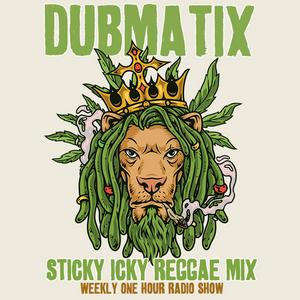This mix celebrates one of reggae’s most iconic and influential voices, bringing together 18 tracks that showcase the incredible range and legacy of the one and only U-Roy.
U-Roy, born Ewart Beckford in 1942 in Kingston, Jamaica, is widely regarded as the Originator and Godfather of Toasting, the vocal style that laid the foundation for what would eventually become rap and hip hop. Emerging from the vibrant sound system culture of 1960s Jamaica, U-Roy pioneered the art of toasting, improvising spoken word lyrics and ad-libs over existing riddims and rocksteady rhythms. His breakthrough came in 1970 when he simultaneously held the top three spots on the Jamaican charts, an unprecedented feat that announced the arrival of a revolutionary new voice in reggae music.
Over a career spanning more than five decades, U-Roy collaborated with some of reggae’s greatest names, including Big Youth, The Gladiators, Hopeton Lewis, and Cornell Campbell, cementing his status as a true cornerstone of the genre. His influence extended far beyond Jamaica, inspiring generations of DJs, toasters, and MCs worldwide. U-Roy continued recording and performing well into his later years, earning lifetime achievement recognition and the deep respect of artists across multiple genres. He passed away in February 2021, leaving behind a catalog that remains as vital and infectious as ever, making this 18-song mix a fitting tribute to one of music’s true originals.
PLAYLIST
U-Roy, Glen Adams - Bangarang - Version
U-Roy - Creation Rebel - Version
U-Roy - Natty Rebel - Remastered
U-Roy, Hopeton Lewis - Drive Her Home
U-Roy - Chalice in the Palace
U-Roy, Tarrus Riley - Pumps and Pride
U-Roy - Wear You to the Ball
Dubmatix, Cornell Campbell, U-Roy - She’s in Love - Steppers Mix
U-Roy - Your Ace From Space
U-Roy, Big Youth - The Higher The Mountain
U-Roy - Tom Drunk - 2000 Digital Remaster
U-Roy - Hot Pop
U-Roy, The Supersonics, Tommy McCook - This Station Rule the Nation
U-Roy - Peace And Love In The Ghetto - 2000 Digital Remaster
U-Roy, The Gladiators - Miss Jones
U-Roy - Sufferation
U-Roy - Musical Addick - The Voices Of Sweet Jamaica - All Star Remix


